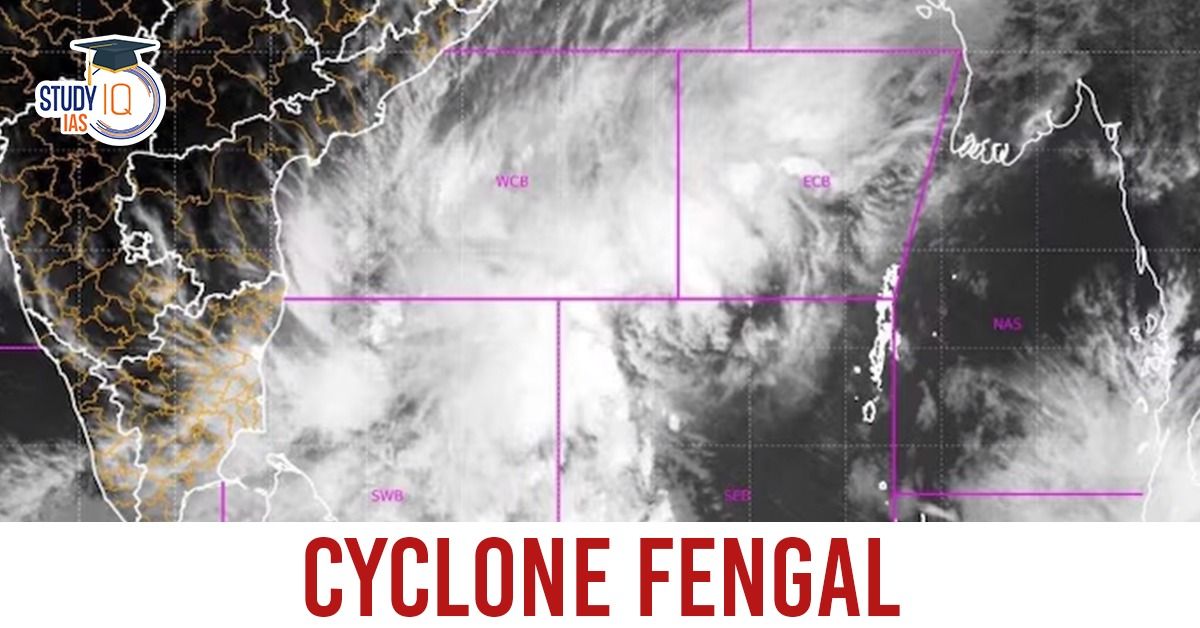Table of Contents
As Cyclone Fengal intensifies over the Bay of Bengal, Chennai and its surrounding areas are experiencing heavy rainfall, gusty winds, and significant disruptions to daily life. With weather conditions rapidly changing, residents and travelers are seeking updates on Chennai weather and cyclone updates. Here’s everything you need to know about the ongoing weather conditions and the impact of Cyclone Fengal.
Cyclone Fengal Impact on Chennai Weather Today
Chennai weather today has been heavily influenced by Cyclone Fengal, which is expected to make landfall along the northern Tamil Nadu coast later today. The cyclone in Chennai has brought continuous rainfall, with the city seeing moderate to heavy showers since last night. The weather in Chennai is expected to worsen as the cyclonic storm moves closer to the coast, with intense rainfall forecasted throughout the day. The IMD has issued a red alert for Chennai and several nearby districts, warning of extremely heavy rainfall and strong winds.
Flight Status at Chennai Airport Amid Cyclone Fengal
Due to adverse weather, Chennai Airport has temporarily suspended all flights, causing major disruptions in both arrivals and departures. IndiGo Airlines has specifically halted its operations, and passengers are advised to check the status of their flights in real-time. Flight status updates can be found on the airline’s official website or through Chennai Airport’s live updates.
If you are traveling today, it’s crucial to stay informed about the latest flight cancellations and delays due to the cyclone in Chennai. Airlines are expected to resume services once weather conditions improve, prioritizing the safety of passengers and crew.
Cyclone Fengal Tracker: Live Updates
As Cyclone Fengal moves westwards, Puducherry and the coastal regions of north Tamil Nadu are experiencing increasingly rough sea conditions. Chennai rains are expected to continue with heavy downpours throughout the day. The cyclone live tracker shows that the storm is currently about 140 km southeast of Chennai, with winds reaching 70-80 km/h and gusts up to 90 km/h.
According to Tamil Nadu weatherman reports, Cyclone Fengal is likely to hit the coast between Karaikal and Mahabalipuram, bringing intense winds and rain to areas like Chengalpattu, Tiruvallur, and Villuppuram. If you live in these districts, prepare for continued adverse weather conditions.
Weather Forecast and Tomorrow’s Outlook
Looking ahead, weather tomorrow is expected to be less severe, but Chennai weather will still experience sporadic rainfall. The rain in Chennai will likely taper off as Cyclone Fengal weakens, but localized flooding and rough seas may persist. Travelers should stay updated on local weather channels and websites for the latest forecasts. Chennai weatherman and Tamil Nadu weatherman are providing continuous updates on social media to track Cyclone Fengal.
Overview of Cyclone Fengal
Cyclone Fengal has rapidly intensified into a potential cyclonic storm as it moves towards the Tamil Nadu coastline. According to the India Meteorological Department (IMD), the cyclone, located approximately 310 km southeast of Nagapattinam, is expected to strengthen further, with wind speeds potentially reaching 65-75 km/h, gusting up to 85 km/h.
The IMD forecasts the cyclone to move north-northwest and land between Karaikal and Mahabalipuram by November 30, 2024. The storm, initially formed as a deep depression, is expected to bring widespread heavy rainfall, particularly to coastal areas, with possible flooding and damage.
Impact of Cyclone Fengal on Tamil Nadu
Tamil Nadu, being a coastal state, is highly vulnerable to cyclones. The state is expected to experience:
- Heavy Rainfall: North Tamil Nadu, including districts like Villupuram, Cuddalore, and Chengalpattu, will face very heavy rainfall, with some regions expected to receive extremely heavy rainfall. This could lead to localized flooding, especially in low-lying areas.
- Strong Winds: Coastal areas of Tamil Nadu, including Puducherry and Karaikal, will experience wind speeds of 50-60 km/h, with gusts reaching up to 75 km/h. These winds could uproot trees, damage buildings, and disrupt power supplies.
- Flooding Risks: The combination of heavy rainfall and strong winds can lead to waterlogging, with flood-prone areas being the most vulnerable. The possibility of riverbank breaches and localized flooding in low-lying areas is also a concern.
IMD Alerts and Precautions
The IMD has issued several alerts for the impacted regions, including:
- Fishermen Advisory: Fishermen have been advised not to venture into the sea until November 31, due to rough sea conditions.
- High Winds and Rainfall: Coastal regions, particularly in Tamil Nadu, Puducherry, and Andhra Pradesh, are on high alert for gusty winds and heavy rainfall.
- School and College Closures: Schools and colleges in Puducherry and Karaikal have been closed as a precautionary measure to ensure the safety of students and staff.
Disaster Management and Preparedness
Given the potential threat posed by Cyclone Fengal, disaster management agencies have been mobilized in Tamil Nadu and Puducherry to mitigate damage and ensure the safety of residents. Key preparedness measures include:
- Evacuation Plans: Local authorities are preparing evacuation plans, particularly for coastal and low-lying areas. Emergency shelters have been set up to accommodate displaced residents.
- Rescue Operations: The Indian Navy and Coast Guard have activated their disaster response plans, with teams stationed in vulnerable areas for potential rescue operations. The Indian Coast Guard has already successfully rescued fishermen stranded in Cuddalore due to rough sea conditions.
- Relief Supplies: Relief supplies, including food, water, and medical kits, are being stockpiled in anticipation of the cyclone’s landfall. These supplies are being dispatched to vulnerable regions to ensure quick relief in the aftermath of the storm.
- Technological Monitoring: The Indian Space Research Organisation (ISRO) is closely monitoring the cyclone using satellites such as EOS-06 and INSAT-3DR. Real-time data from these satellites helps refine safety measures and issue timely alerts to the affected regions.
Environmental Impact of Cyclones
Cyclones like Fengal have a profound impact on the environment. The strong winds and heavy rainfall can cause soil erosion, damage to coastal ecosystems, and disrupt local biodiversity. In Tamil Nadu, the cyclonic winds could severely affect mangrove forests and other coastal vegetation, which play an essential role in protecting the coastline from erosion.
Moreover, the cyclone may cause significant damage to agricultural crops, particularly in low-lying areas, leading to economic losses for local farmers.
Economic and Social Implications
The socio-economic impact of Cyclone Fengal could be significant, particularly for the coastal communities in Tamil Nadu and Puducherry. The immediate effects will include:
- Infrastructure Damage: Strong winds and flooding could damage infrastructure such as roads, bridges, and buildings, disrupting daily life.
- Agricultural Losses: Heavy rainfall could lead to crop damage, particularly in the affected agricultural zones of Tamil Nadu. The damage to crops such as paddy and groundnut could impact local food production and economic stability.
- Disruption to Services: The cyclone could disrupt transportation, including air, rail, and road services, leading to delays and inconveniences for travelers. Waterlogging and road blockages may hamper rescue and relief operations.
Conclusion
Cyclone Fengal’s approach reminds coastal regions in India of their vulnerability to natural disasters like cyclones. For UPSC aspirants, this event underscores the importance of understanding disaster management strategies, the role of agencies such as the IMD, and the environmental and socio-economic impacts of such disasters.
In addition, Cyclone Fengal also highlights the need for sustainable coastal management practices to mitigate the long-term effects of cyclones, such as the protection of mangroves and the reinforcement of infrastructure. As the storm approaches, residents must stay informed and adhere to government advisories to ensure their safety.


 5 Years of SVAMITVA Scheme and Its Benef...
5 Years of SVAMITVA Scheme and Its Benef...
 Places in News for UPSC 2025 for Prelims...
Places in News for UPSC 2025 for Prelims...
 Countercyclical Capital Buffer (CCyB): P...
Countercyclical Capital Buffer (CCyB): P...





















